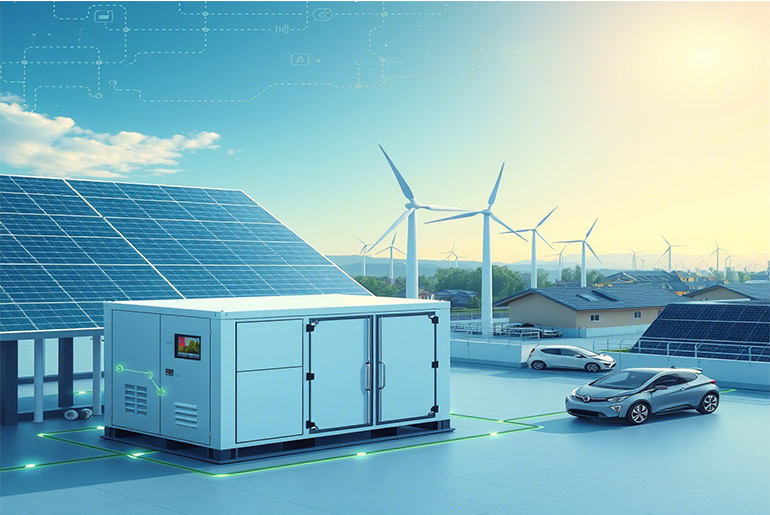In a significant development for Kerala’s renewable energy infrastructure, the Kerala State Electricity Regulatory Commission (KSERC) has granted its approval for the Kerala State Electricity Board’s (KSEB) proposal to establish four large-scale Battery Energy Storage Systems (BESS) at key substations across the state. The move is aimed at managing the growing volume of surplus solar power being generated and ensuring greater grid stability and energy reliability.
The four BESS units will collectively have a storage capacity of 125 megawatts (MW) / 500 megawatt-hours (MWh) and will be installed at KSEB substations in Sreekantapuram (Alappuzha), Pothencode (Thiruvananthapuram), Mulleria (Kasaragod), and Areacode (Malappuram). Among these, the Sreekantapuram and Pothencode substations will each have BESS systems with a capacity of 40 MW/160 MWh, while Mulleria will host a 15 MW/60 MWh unit, and Areacode a 30 MW/120 MWh system.
These installations are a proactive step toward stabilizing the state’s electricity grid, particularly during periods of peak solar generation when surplus energy is produced. By storing excess solar power during the day and releasing it during peak demand in the evening, the BESS units will help reduce grid imbalances, minimize curtailment of renewable power, and ensure uninterrupted power supply across Kerala.
The projects will be implemented through NHPC Ltd, which has been nominated as a Battery Energy Storage System Implementing Agency (BIA) by the Union Ministry of Power under the Viability Gap Funding (VGF) scheme. This central government support will allow the projects to be implemented without significant financial burden on KSEB.
The Commission has stipulated that the projects must be completed within 15 months of NHPC signing the agreement with the respective project developers. However, KSERC has also directed KSEB and NHPC to explore the possibility of completing the work ahead of schedule, considering the increasing urgency in managing renewable integration and grid balancing.
Additionally, the regulatory body has approved the monthly capacity charges quoted by four developers shortlisted by NHPC for these projects. These charges are based on competitive bidding and will form the basis for the power purchase agreements.
This marks a major step in Kerala’s energy transition journey. With a rising share of renewable energy in its power mix, the deployment of energy storage solutions is seen as essential for ensuring the reliability, flexibility, and sustainability of the grid. The integration of BESS at the substation level is expected to act as a model for other states facing similar renewable integration challenges.



